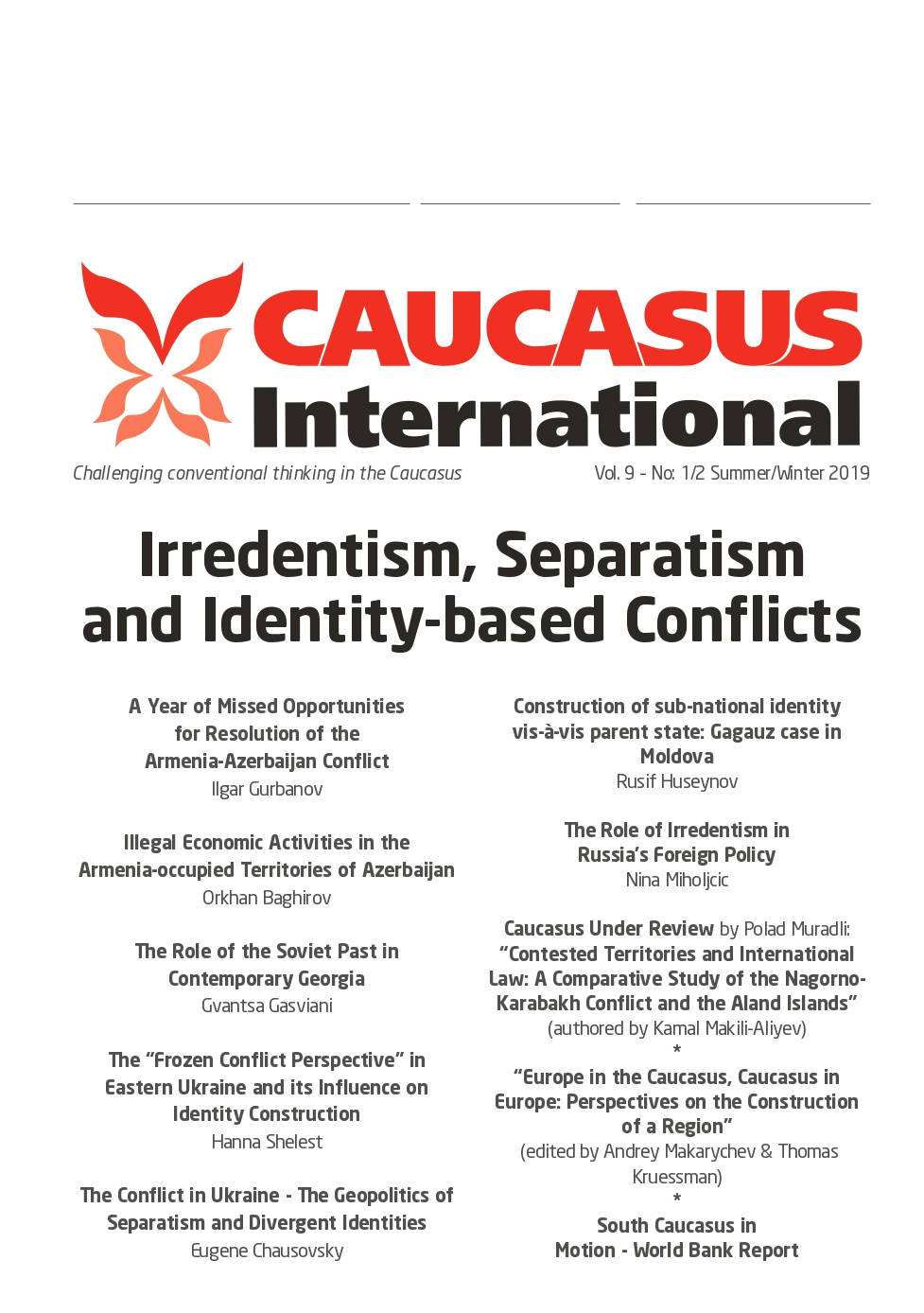Construction of sub-national identity vis-à-vis parent state: Gagauz case in Moldova
The current state of Gagauzia, an autonomous territory within Moldova since the 1990s, reflects its troubled historical past and geographical location. Gagauz identity is constructed in an environment conditioned by the region’s geopolitical position and the traditional rule of larger groups. Other factors, such as ethno-linguistic affiliation, historical narratives, incomplete national consciousness, and poor economic conditions, further influence Gagauz identity, which may be in some ways different from that of the parent state’s dominant group. This paper tries to shed light on how Gagauz self-identity is constructed and how it is contradistinguished from that of Moldova by examining the case partly through an analysis of the Gagauz elite’s narrative. This construction is controversial and at the same time perplexing, given Moldova’s own quest for identity and geopolitical orientation. In some instances, the parent state can be positioned as ‘Other’ due to the Romanophobia and Russophilia of the Gagauz; in other cases, Moldova can be internalized as part of Gagauz statehood vis-à-vis a pan-Romanian agenda. This paper is part of a larger project that has generated original data derived from the author’s field trip to Gagauzia, based on the narratives of the local elite from this small and under-studied region. The study takes a top-down approach in considering identity construction.
Key words: Gagauz, Gagauzia, Moldova, national identity
Latest news
- 03/17/2020 Call for Submission: “Non-Alignment Movement and Its Perspective in International Affairs”. Deadline: 1 July 2020 2621 views
Popular articles
- 02/24/2020 The Role of Irredentism in Russia’s Foreign Policy 2535 views
- 02/24/2020 Construction of sub-national identity vis-à-vis parent state: Gagauz case in Moldova 2215 views
- 02/24/2020 The Conflict in Ukraine - The Geopolitics of Separatism and Divergent Identities (Commentary) 2070 views
- 02/24/2020 The Role of the Soviet Past in Contemporary Georgia 2043 views





